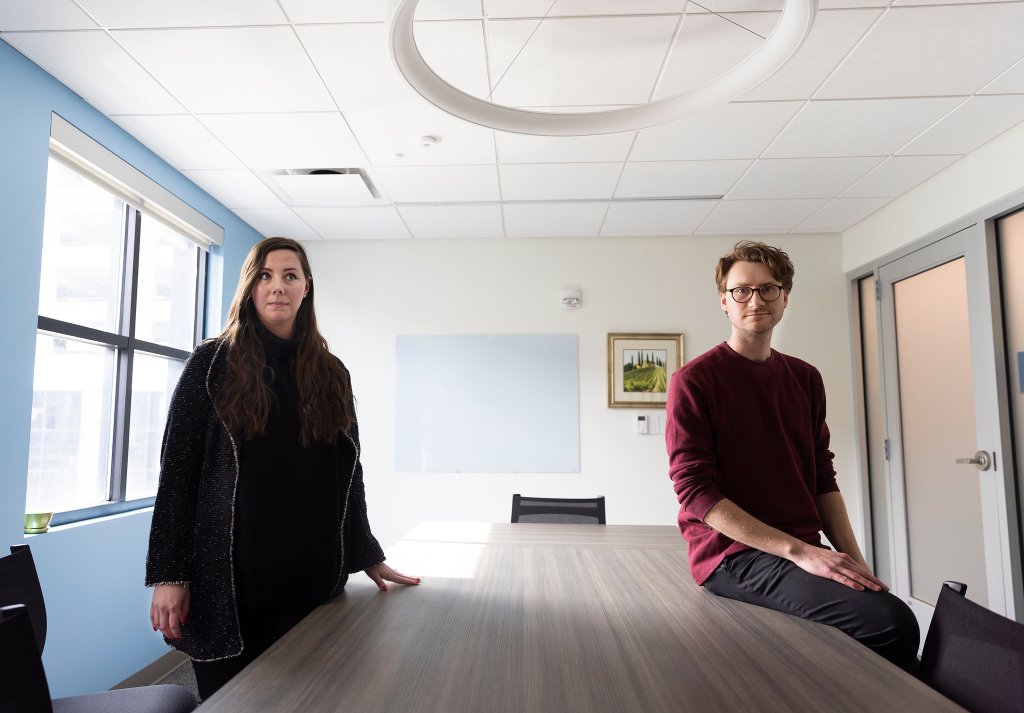University of Maine Law School Proposes New Criminal Law Clinic
The University of Maine School of Law is seeking state legislative funding to establish a new clinic dedicated to adult criminal cases, addressing a critical need for legal representation for unrepresented defendants across Maine.
Current Landscape and Legal Needs
Colleen Cosgriff, a second-year law student, highlights the significance of her experiences at the law school’s legal clinic, emphasizing how her initial exposure to the clinic at the front desk provided grounding amidst her intensive studies. Currently, alongside 28 other students, she actively represents clients at no cost through the clinic’s various programs.
The proposed criminal law clinic aims to alleviate a pressing issue identified earlier this year when a state investigation revealed that over a hundred unrepresented defendants faced delays of weeks or even months before receiving legal counsel. According to Leigh Saufley, the school’s dean, the clinic would promptly assist in addressing these cases and offer students valuable insights into criminal justice careers.
Legislative Support and Challenges
The law school’s request for a $1 million budget to fund the new clinic must compete with various other initiatives vying for state resources. Saufley pointed out that many regions, especially rural areas, lack adequate legal representation, emphasizing the urgent requirement for trained lawyers in the community.
The clinic proposal builds on the law school’s existing programs, which have been active for decades but faced significant challenges due to the 2008 recession. Saufley noted that many vital programs were cut during that time, and establishing the proposed clinic could reignite the school’s contributions to criminal justice.
Expanding Clinical Education
The law school currently operates five clinics, each catering to distinct populations: the Prisoner Assistance clinic, Youth Justice clinic, Rural Practice clinic, Refugee and Human Rights clinic, and a General Practice clinic encompassing a wide array of legal issues. In the past year alone, student clinicians handled over 440 clients and 519 cases, providing critical educational experiences while serving the community.
Jeffrey Sullivan, a third-year student, expressed that his clinical experiences, particularly in the Youth Justice clinic, have profoundly influenced his legal skills. His involvement began with a keen interest in criminal law, catalyzed through practical enrichment from his clinical assignments.
A Future Pathway
The legislation supporting the proposed clinic, Bill LD 884, recently passed the Legislature’s Education and Cultural Affairs Committee unanimously and aims to support future public defenders, which Maine desperately needs in light of recent staffing shortages in public defense offices. With fewer than 30 public defenders currently in Maine, creating opportunities for law students to engage in this critical legal area is essential.
As Sullivan prepares to graduate, he acknowledges the lack of available positions in Maine. However, he remains optimistic about the long-term impact these clinics could have, facilitating greater involvement in criminal defense careers among future lawyers and enhancing the state’s justice system.
Conclusion
As the University of Maine School of Law seeks to expand its educational reach through the proposed criminal law clinic, the initiative presents an opportunity to bridge the gap between students’ clinical training and the pressing legal needs of Maine communities. Through enhanced support from the state legislature, this clinic could pave the way for a new generation of legal professionals dedicated to upholding justice.

